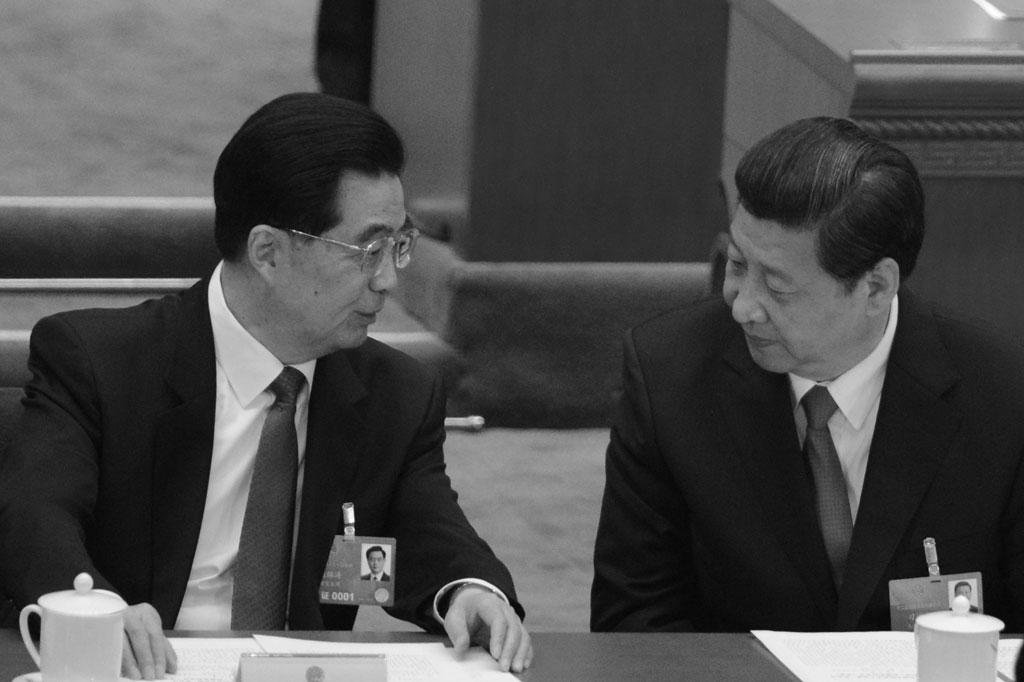Appearing to be the boss of China, yet living under the shadow of another more powerful, is a theme that pops up time and again in Chinese history: powerful women like Empress Wu Zetian in the Tang Dynasty and Empress Dowager Cixi in the Qing once controlled the Chinese imperial court without being officially in charge.
For years, Chinese netizens have found a modern-day equivalent: former Chinese Communist Party leader Hu Jintao, who was called the “Emperor’s son,” long laboring under the shadow of former chief Jiang Zemin.
Jiang handed over the reigns of the Communist Party, but retained control of the Chinese military during the leadership handover at the 16th National Congress in 2002. He retained his post as chairman of the powerful Central Military Commission until 2004.
According to the Hong Kong political magazine Chengming, Hu Jintao is now providing his side of the story, purporting to show how he was handicapped during his tenure as the top Chinese leader. The magazine, which specializes in political hearsay from China, wrote about the matter in its January 2015 edition. It is unclear how the magazine obtained the information, or whether Hu Jintao actually said the things he is attributed as saying.
According to Chengming, Hu Jintao says that even after Jiang gave up his role as head of the military in 2004, Jiang continued to provide “ideas or suggestions” to the Politburo Standing Committee, the most powerful ruling organ in China—for a total of 91 times from April 2004 to November 2012.
Chengming presents the information in such a way as to suggest that Hu Jintao found these “ideas and suggestions” somewhat vexatious.
During the same time period, Jiang also provided a total of 120 “instructions” on affairs related to the Party and the military, Chengming says.
He also maintained his own political faction which meddled in Hu Jintao’s attempts to construct and implement policy; and Chengming has Hu Jintao blaming the general lack of progress on important reform policies during his tenure on the influence of Jiang.
Chengming’s account is impossible to verify, and the publication does not even say how it purported to obtain the thoughts and quotes from a former Chinese communist leader—such men typically do not grant interviews. Nevertheless, the information broadly tracks what is already known or suspected about the Hu Jintao tenure, and Jiang Zemin’s continued heavy influence over elite politics for almost a decade after he officially stepped down.




